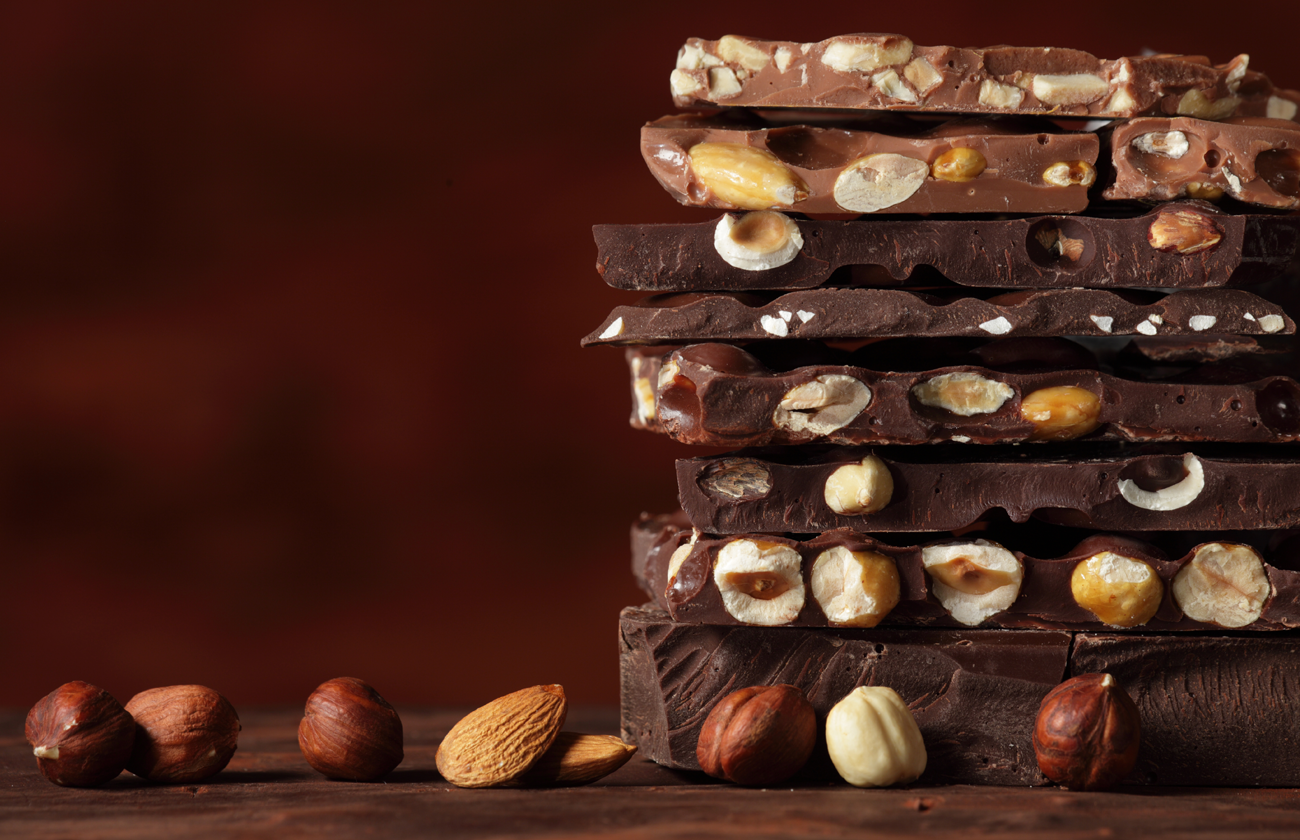It’s quite hard to predict how you will feel during your periods. Irrespective of your age and lifestyle, you might have felt uncomfortable during that time of that month. While sanitary hygiene products are important, eating right is crucial to enjoying a healthier and happier period. Many women suffer from these symptoms during their menstrual cycle like cramps, fatigue, bloating, body aches, etc. Whether you experience any of the symptoms or not, it is always a wise idea to add these food items during your periods.
1 Nuts & Seeds
When you are craving snacks during your periods, nuts and seeds are the best choices. Nuts are rich in omega-3 fatty acids, protein, magnesium, potassium, etc. You can use nuts to make nut milk or nut butter and enjoy delicious smoothies and shakes. Create a trail mix with cashews, walnuts, almonds, pumpkin seeds, sunflower seeds, chia seeds, and dried black raisins.
2 Dark Chocolate
Good quality dark chocolate that is high in cocoa is high in flavonoids. Choose a dark chocolate bar that has 70% or above dark cocoa content. Dark chocolate is rich in magnesium which can reduce PMS symptoms during your periods.
3 Yogurt
Many women get yeast infections during or after their menstrual cycle. If you tend to get yeast infections, you need to add more probiotic-rich foods to your diet like yogurt. Additionally, yogurt is rich in calcium, protein, and other nutrients. If you are lactose intolerant, you can enjoy coconut yogurt or soy yogurt. Another probiotic-rich food to add to your diet is sauerkraut. Enjoy a few spoonfuls of sauerkraut with a sandwich or fried eggs.
Along with eating all the right foods, stay hydrated by drinking enough water throughout the day. A hot compress can bring some relief to the PMS symptoms during your periods.
Please check our edition 1 for more foods to add to your diet during your periods.
FAQ’s
2. How does dark chocolate aid in menstrual health?
Dark chocolate with 70% or higher cocoa content is packed with magnesium and flavonoids. Magnesium helps relax muscles, reducing cramps, while flavonoids improve blood circulation. Consuming a small piece can satisfy sweet cravings and provide mood-lifting benefits, making it a delightful and beneficial treat during your period.
3. What role does yogurt play during menstruation?
Yogurt is rich in probiotics, calcium, and protein, which support gut health and immune function. During menstruation, it can help prevent yeast infections and maintain vaginal health. For those who are lactose intolerant, alternatives like coconut or soy yogurt offer similar benefits without discomfort.
4. Can nuts and seeds be consumed in various forms?
Absolutely! Nuts and seeds can be enjoyed in multiple forms—raw, roasted, or as nut butters. Incorporating them into smoothies, salads, or as a trail mix with dried fruits adds variety and enhances their nutritional benefits, making them a versatile snack during your period.
5. Is there a recommended daily intake of dark chocolate?
While dark chocolate offers health benefits, moderation is key. A small piece, approximately 20–30 grams, is sufficient to reap its advantages without overconsumption of sugars or calories. Opting for varieties with higher cocoa content ensures maximum health benefits.
6. How does yogurt contribute to hormonal balance?
The probiotics in yogurt help maintain a healthy gut microbiome, which plays a crucial role in hormone regulation. A balanced gut can influence estrogen and progesterone levels, potentially reducing PMS symptoms and promoting a more comfortable menstrual cycle.
7. Are there any side effects of consuming these foods during periods?
Generally, nuts, seeds, dark chocolate, and yogurt are safe and beneficial during menstruation. However, individuals with allergies to nuts or lactose intolerance should opt for suitable alternatives. Overconsumption of dark chocolate may lead to increased calorie intake, so moderation is advised.
8. Can these foods replace medication for period discomfort?
While these foods can alleviate mild menstrual discomforts like cramps and mood swings, they are not a substitute for medical treatment. For severe symptoms, it's essential to consult a healthcare professional for appropriate diagnosis and treatment.
9. How can I incorporate these foods into my daily diet?
Start your day with a yogurt parfait topped with nuts and seeds. Enjoy a piece of dark chocolate as an afternoon snack. Include a handful of mixed nuts in your trail mix or sprinkle seeds on your salads. These simple additions can enhance your diet and menstrual health.
10. Are there other foods beneficial during menstruation?
Yes, incorporating fruits like watermelon and pineapple for hydration, green leafy vegetables for iron, and ginger for its anti-inflammatory properties can further support menstrual health. A balanced diet rich in these nutrients can help manage various menstrual symptoms effectively.

